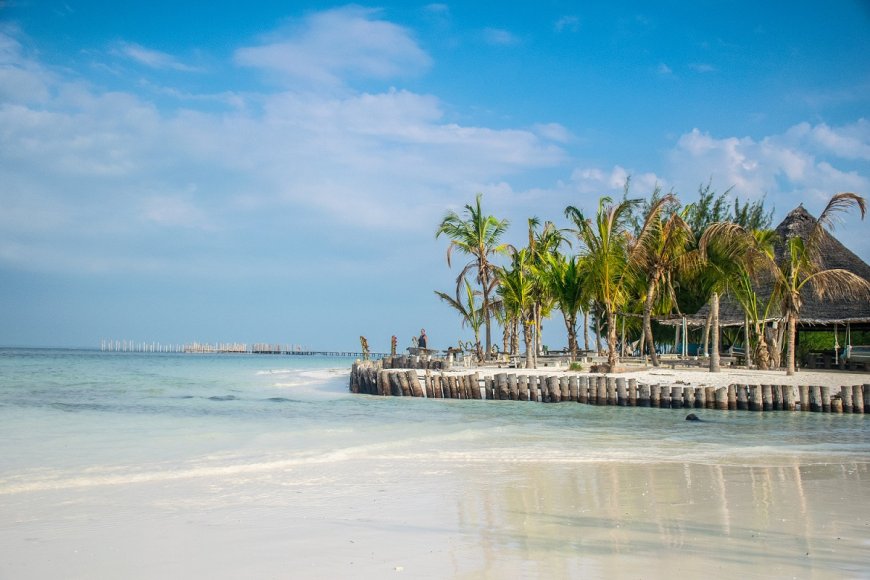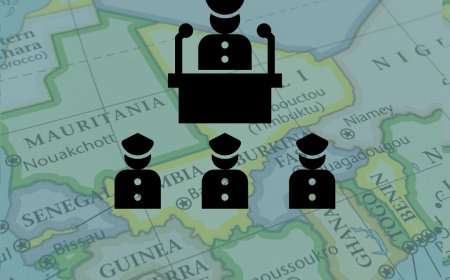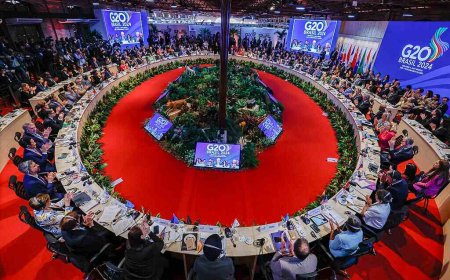Summary
- Tourism to Africa experienced significant growth, more than doubling from 6.7 million visitors in 1990 to 33.8 million visitors in 2012 and contributing 2.8% to the region's GDP.
- Despite the positive growth trajectory of the tourism industry, its developmental impact has been limited. The industry heavily relies on foreign goods and services, leading to significant leakages of revenue that could benefit local economies.
- Tourism has the potential to contribute to economic development and provide employment and financial opportunities. However, the employment level of local residents within the tourism sector remains low, particularly in managerial positions.
- In Zanzibar, tourism plays a critical role in the economy, accounting for a significant portion of GDP and foreign exchange earnings. However, despite its importance, the local employment rate in the tourism sector is low, and foreign-owned hotels and resorts dominate the industry.
- The tourism industry in Africa, including Zanzibar, is characterized by economic leakages, as locally sourced goods and services are often overlooked in favor of imports. Efforts should be made to prioritize local products and services to ensure that tourism benefits the local economy and reduces leakages.
Introduction
Tourism to Africa more than doubled from 6.7 million visitors in 1990 to 33.8 million visitors in 2012, with tourists spending US$36 billion and contributing 2.8.% to Sub-Saharan Africa’s GDP.1 The industry is continuing in its positive growth trajectory, having grown by 8.6% in 2020 in comparison to a 7% global average within the tourism sector.2 Tourism’s potential to contribute to economic development has been highlighted by multiple bilateral and multilateral organizations, such as the World Bank, the IMF, and the BMZ, to name just a few. Tourism has been said to be the catalyst for greater employment and financial opportunities.3 In addition, the industry supposedly brings wealth to local communities willing to invest in attracting tourists.4 Yet, there is a socio-economic development and industry growth gap - while the industry has grown, its developmental effect has been limited. The tourism industry in Africa relies heavily on foreign goods and services, resulting in significant leakages. Revenue that could benefit local economies is expatriated to other countries' economies. Local communities cannot unlock the full benefits of tourism’s lucrative nature.
Moreover, as a driver of development, tourism has an associated power dynamic: Tourists have wealth and their visits determine which low-income country is the beneficiary. The power dynamic is reinforced by tourism narratives. The tourist comes to consume culture and nature whilst maintaining an ‘othering’ relationship with the local inhabitants. The locals are there to be observed and to serve, becoming commodities like the consumable culture and nature. Enclave tourism furthers the othering of locals, with those tourists engaging on their own terms with locals and the local culture from the comfort and safety of their foreign-owned-all-inclusive resorts. They pre-pay abroad for their all-inclusive stay and only approximately 20-45% of the total holiday cost amasses in Africa.5
The Case of Zanzibar
Zanzibar’s idyllic tropical beaches, warm weather and bright blue waters have attracted many tourists over the years. Narrated as a tropical paradise ripe for consumption, the tourism industry has flourished. Tourists visiting, relaxing, rejuvenating and exploring play a critical role in Zanzibar’s economy. The service industry, which is made up mostly of tourism in Zanzibar, makes up 51.7% of the island's GDP.6 Tourism accounts for approximately 27% of the GDP and 80% of its foreign exchange earnings.7
Given that tourism makes up such a large portion of the GDP and is a highly labor-intensive industry, we expect to see significant local employment within tourism. However, this is not the case. Zanzibaris accounted for only 5% of total direct and indirect employment in the tourism sector in 2009.8 Around a decade later, Zanzibaris accounted for approximately 25%,9 but nonetheless three-quarters of the tourism workforce were non-locals. Zanzibaris are particularly underrepresented in managerial positions in tourism accommodations and restaurants, making up only 46% and 11% of the workforce respectively,10 whereas locals make up the majority of unskilled labor in accommodation and restaurants, 83% and 70% respectively.11 For the tourism sector to indeed encourage pro-poor growth, the employment level of Zanzibaris in the sector must rise as must their representation in managerial positions.
Leakages in Zanzibar’s tourism sector are not confined only to employment. Accommodation, food and more are rarely locally owned and operated. In regards to accommodation, the majority of four- and five-star hotels are foreign-owned, whereas hotels with lower grades are often locally owned.12 The four- and five-star hotels are generally all-inclusive and enjoy high occupancy rates while the lower-graded hotels typically suffer low occupancy rates.13 The occupancy discrepancies are largely a result of locally-run hotels not meeting international accommodation standards, which is attributable to subjective standards of quality and lack of international investment.14 Additionally, foreign-owned hotels are more likely to be recognizable chains, whereas local accommodations are generally small businesses. Local accommodation occupancy could increase should small businesses be seen as a key part of the tourism industry instead of entities on the periphery.15
Moreover, given the self-contained nature of foreign-owned hotels, opportunities for linkages with local suppliers are regularly foregone. Local suppliers attribute the inability to link their goods with accommodation providers and restaurateurs to “low production levels, low prices offered by hotels and restaurants, coupled with late payments for the products delivered”.16 Imports are prioritized over local products, resulting in significant leakages in the tourism sector. As of 2016, only 17% of goods and services in the tourism industry were locally sourced (see Figure 1). Service workers have the highest local representation in tourism, with 25% of employee compensation going to local people (see Figure 1). Goods and properties are less likely to be locally sourced, with 15% of food, 6% of beverages and 17% of accommodation being local (see Figure 1). A more concerted effort to move towards local products and services is needed to ensure the monetary gain of tourism positively impacts Zanzibar’s local economy.
Figure 1: Linkages and Leakages on Zanzibar’s Tourism Industry
Africa at Large
Tourism became a key part of Zanzibar’s economic development through the 1987 Economic Recovery Program, which emerged from IMF Structural Adjustment Policies (SAPs) and the Investment Protection Act. The case of Zanzibar is reflective of how the tourism sector operates in Africa at large. Tanzania, and by extension Zanzibar, was one of 29 African countries that implemented, with varying amounts of external pressure, the IMF and World Bank SAPs.17 The SAP era of the 1980s opened many ratifying countries to the tourism industry. The SAPs enforced a liberalization of the economy to permit greater foreign investment, including in tourism. Furthermore, international agencies such as the IMF, the World Bank and the International Finance Corporation increased their loans for tourism, encouraging many developing countries to invest in tourism as part of their development plans.18 And like many policies that emerged from SAPs, tourism development primarily serves foreign interests. As demonstrated in the case of Zanzibar, there has been limited economic growth on the local level. Instead foreign investors are reaping the benefits. Botswana, Kenya, South Africa and Zimbabwe demonstrate a similar lack of pro-poor growth and development due to economic leakages in the tourism sector. Tourism, as it stands, joins the long list of extractive industries working to underdevelop Africa.
Conclusion
In Africa, tourism has not proven to be the “passport to development”19 it was hoped to be. Its associated social costs and economic leakages make it an unappealing development tool.
The question is how can African governments ensure they retain a significant portion of tourism expenditures? Tourism functions not only on the ability to attract tourists but also on foundational infrastructure. Many of the leakages in the tourism industry can be addressed by investing in local accommodation, produce and tour operations so they meet international standards and are a credible alternative to foreign imports. Encouraging intra-African leisure tourism also has the potential to mitigate the development and industry growth gap. To retain profits and benefit local economies, the tourism industry must reach a threshold of local development.
1 Christie, Iain, Eneida Fernandes, Hannah Messerli, and Louise Twining-Ward. Tourism in Africa: THE WORLD BANK Iain Christie, Eneida Fernandes, Hannah Messerli, and Louise Twining-Ward Harnessing Tourism for Growth and Improved Livelihoods. N.p.: The World Bank, 2014: 3
2 Mitchell, Fraser. "Debate: How can the growth of Intra-African Tourism be accelerated?." Africalive. Last modified March 2, 2020. https://africalive.net/article/debate-how-can-we-accelerate-the-growth-of-intra-african-tourism/.
3 Christie, Iain, Eneida Fernandes, Hannah Messerli, and Louise Twining-Ward. Tourism in Africa: THE WORLD BANK Iain Christie, Eneida Fernandes, Hannah Messerli, and Louise Twining-Ward Harnessing Tourism for Growth and Improved Livelihoods. N.p.: The World Bank, 2014.
4 Ibid.
5 Dieke, Peter. "Tourism and Structural Adjustment Programmes in the African Economy." Tourism Economics 1, no. 1 (March 1995): 80. https://doi.org/10.1177/135481669500100106.
6 "Zanzibar at a Glance." ZIPA. Last modified , 2019. https://www.zipa.go.tz/zanzibar-at-a-glance/#:~:text=The%20economy%20of%20Zanzibar%20is,%2C%20livestock%2C%20and%20fishing).
7 World Bank. (2022, November 9). Zanzibar Can Accelerate Poverty Reduction by Seizing More Opportunities to Diversify its Tourism Sector [Press Release]. https://www.worldbank.org/en/news/press-release/2022/11/09/zanzibar-can-accelerate-poverty-reduction-by-seizing-more-opportunities-to-diversify-its-tourism-sector
8 Sharpley, Richard; Ussi, Miraji (January 2014). "Tourism and Governance in Small Island Developing States (SIDS): The Case of Zanzibar: Tourism and Governance in Zanzibar". International Journal of Tourism Research. 16 (1): 90. doi:10.1002/jtr.1904
9 "Assessment of the Impact of Tourism on Communities and Children in Zanzibar." UNICEF Tanzania, ZCT, ZATI & SUZA (June 15, 2018): 18
10 Ibid.
11 Ibid.
12 Sharpley, Richard; Ussi, Miraji (January 2014). "Tourism and Governance in Small Island Developing States (SIDS): The Case of Zanzibar: Tourism and Governance in Zanzibar". International Journal of Tourism Research. 16 (1): 92. doi:10.1002/jtr.1904
13 Ibid.
14 Ibid.
15 Revenue ‘leakages’ in tourism deeply affect African countries’ economies: Expert (2022, October 27). Club of Mozambique. https://clubofmozambique.com/news/revenue-leakages-in-tourism-deeply-affect-african-countries-economies-expert-227463/
16 Anderson, Wineaster and Saleh Juma. “Linkages at Tourism Destinations: Challenges in Zanzibar.” (2011).
17 Dieke, Peter. "Tourism and Structural Adjustment Programmes in the African Economy." Tourism Economics 1, no. 1 (March 1995): 81. https://doi.org/10.1177/135481669500100106.
18 Diamond, J. “Tourism’s Role in Economic Development: The Case Reexamined.” Economic Development and Cultural Change 25, no. 3 (1977): 539. http://www.jstor.org/stable/1152656.
19 Selwyn, Tom. “Tourism Society and Development.” Community Development Journal 27, no. 4 (1992): 357. http://www.jstor.org/stable/44257041.
About the Author
Isabella Roberts is a Junior Fellow and Project Coordinator at the Africa Policy Research Institute. She holds a Master’s in International Relations - Political Science from the Graduate Institute of International and Development Studies in Geneva, Switzerland, and a BA in Africana Studies and International Relations - Political Science from Wellesley College in Wellesley, MA, USA.




